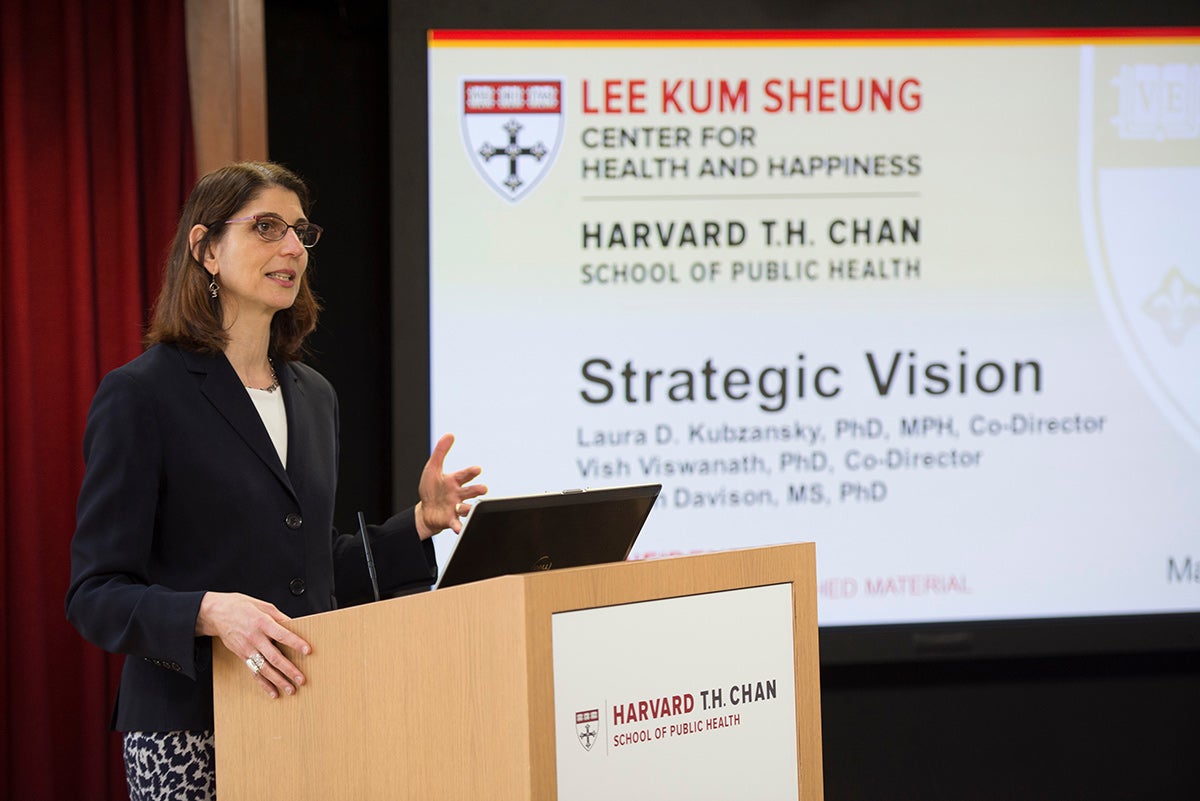Most public health research focuses on the underlying causes of death and disease. But at the Lee Kum Sheung Center for Health and Happiness at the Harvard Chan School, researchers focus on the opposite: the positive factors that maintain or even improve people’s health and well-being. A $21 million gift from the Lee Kum Kee family established the center in 2016.
“We almost never think about what is optimal functioning, and how to get people there and keep people there,” says Laura Kubzansky, Lee Kum Kee Professor of Social and Behavioral Sciences and co-director of the center. She says the center is helping shift the research paradigm to ask a new set of questions, such as: How can you measure well-being? What physical, emotional, and social factors contribute to it? Can interventions such as exercise or mindfulness or redesigning work bolster a sense of purpose or optimism?
The center is also focused on moving evidence on health and happiness into practice and policy. For example, center co-director Kasisomayajula “Vish” Viswanath, Lee Kum Kee Professor of Health Communication, studies both how communications—movies, television, advertising, and social media—affect health and well-being, particularly among vulnerable groups, and how evidence is translated to promote well-being. “Not every group is able to take advantage of the revolution in communications technologies,” said Viswanath, “so we are examining how to address those inequities. We can exploit these technologies to promote well-being uniformly across social groups.”
Sammy Lee, chairman of the LKK Health Products Group, says that happiness is a key element in the corporate culture of the Lee Kum Kee companies, a 130-year-old family business that produces sauces, condiments, and herbal supplements worldwide—and an unmet need in the world. “While most research funding goes to the curing of diseases, the Lee Kum Sheung Center for Health and Happiness can encourage scholars from a wide range of disciplines to work together towards the goal of creating more happiness in the world,” says Lee. Added David Lee, chairman of the Lee Kum Kee Family Foundation, “As the world’s leading institution of public health, Harvard Chan School can make the whole world aware of the importance of happiness in improving people’s overall well-being, as well as the measures that can help achieve this goal.”

